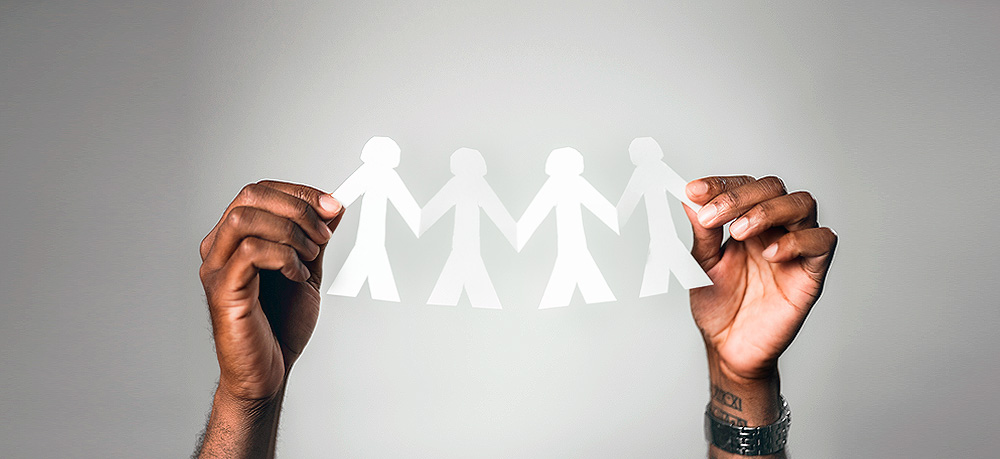Therapist Ellie Harvey Talks About Group Therapy For Adults
My name is Ellie Harvey and I am a therapist and coach. As a practising psychotherapist, and someone who has experienced different kinds of therapy, I believe that while personal therapy is greatly beneficial, there are some unique and profound qualities that group therapy can bring to our personal development.
I will be running a therapy group for adults at HQ Haggerston, starting weekly in 2023. You can get detailed information on how the group will run and where to sign up at the bottom of this article.
People come to group therapy for a wide range of reasons such as dealing with difficult thought patterns or behaviours, low self-esteem or confidence issues, relationship challenges, feeling low or anxious or experiencing a lack of purpose or drive.
Whether it is your first time considering therapy, you are currently in therapy, or you have tried it in the past, Group therapy is likely to have something to offer your personal development.
How group therapy can benefit your wellbeing

1/ It teaches us to open up and be vulnerable with others.
Many of us experience fears around opening up and being vulnerable in front of others, possibly for good reason due to past negative experiences.
However fearing vulnerability can be a barrier to deep and meaningful connections both with ourselves and with others. It can also be a barrier to gaining the support we need in difficult times.
Group therapy can provide a rare opportunity to practice these skills of vulnerability and authenticity which are necessary for creating enriching, intimate relationships throughout life.
2/ It is more affordable than individual therapy.
Therapy can be a life-changing experience which can help us to work through internal conflicts to create a safer and more comfortable and enjoyable internal world – arguably one of the most important things for a good quality of life.
That said long-term, individual, weekly therapy may not be financially viable for many.
Group therapy offers short but impactful courses in therapy, which are more directive and psycho-educational.
In this way getting involved with group therapy can give you accelerated personal development and allow you to do this at a more affordable weekly rate and in shorter-term bursts of as little as 6 weeks.
3/ You learn from one another.
Another way Group therapy is thought to accelerate personal development is by having more perspectives and life experiences in the room than in individual therapy.
In this way, you are privileged to listen to and learn from one another and when one person has a breakthrough, it is likely to have a knock-on impact on others who may relate to the content.
In broader society we are often reminded of the differences between us, however, group therapy provides an opportunity to notice our common humanity.
The material circumstances may differ but the emotional responses and experiences can in some way be relatable to us all.
4/ There is a greater level of accountability and support within the group.
When we reach out for support in any form of therapy we are acknowledging that we cannot make the changes we want on our own and we are committing to working with another to support our therapeutic goals.
In group therapy this commitment feels greater as we have more accountability partners on our journey, supporting our change.
Not only this but we are invited to show up supportively for others in the group, something which has been shown to have great benefits for our own personal development by giving us a reason beyond ourselves, to stretch and grow.
5/ It helps us to work through interpersonal issues and learn about ourselves through group dynamics.
Group therapy offers an opportunity to work interpersonally with others. In this way, we encounter relational dynamics in the group that are likely to be present in our external lives.
This is ideal for our personal development as it provides us with live examples of how we relate, react and respond to others, providing an opportunity to interrogate what is going on with us in our relationships and why.
By relating to members of the group and developing an internal observation of this, we are inevitably working through important interpersonal issues in our external lives and relationships.
6/ It helps us to feel connected.
We may see many people day to day but we may not feel genuine connection very often. This is because we feel most connected when we are able to be our authentic selves rather than feeling the need to put on a front.
Therefore this type of therapy offers a unique space where we can practice sharing honestly about ourselves, our emotions and our challenges with a group of people who want to do the same.
This is why after group therapy people often report feeling less isolated from their problems and a greater sense of connection with others.
Experiences of sharing in groups can often lead to fewer worries about how you appear to others in your external life and to a greater connection to the universal human experience.
7/ It can help us to find compassion and acceptance for ourselves and others.
One of the most common challenges in our relationship with ourselves is resolving what we want with what ‘is’. Counter-intuitively, this tension can inhibit efforts to change. Seminal therapist Carl Rogers once said, “The curious paradox is that when I accept myself just as I am, then I can change.”
When clients hear this sentiment they often ask, ‘but how do I gain self-acceptance?’. In personal therapy, I help clients to explore how their lens for viewing themselves differs from their lens for viewing others.
Working in a therapy group, we experience this first-hand by noticing how the different ‘lenses’ we view others with can contrast with the ‘lenses’ which we view ourselves through. This helps to broaden our perspective and gain greater compassion and acceptance for ourselves, others and the human experience at large.
Many existential philosophers hold that acceptance is an important part of creating change. This is because when we don’t accept reality as it is right now, we are denying or resisting it, which prevents us from being ‘present’.
In their eyes, when we are present within our reality, we are sooner able to reshape it. Getting involved in group therapy activities allows us to recognise the universal challenge of self-acceptance, moving the discussion away from personal ‘flaws’.
How to join my therapy group

This 6-session therapy group programme will explore helpful topics for dealing with psychological problems, such as understanding emotions, negative thinking patterns, defence mechanisms and sabotaging behaviours.
We will also explore and develop tools that enrich life such as self-compassion and acceptance as the key to positive change
Group therapy sessions are 2 hours long and cost £40 per session. They occur on a weekly basis and require a commitment of 6 weeks at a time to help everyone get the best out of the group.
This therapy group will be starting a cycle of 6 sessions at HQ Therapy in 2023.
If you are interested in joining or want to find out more please contact me via email at [email protected]
I am happy to have a 15-minute phone consultation with participants beforehand if required.
———————————
Ellie Harvey
Email: [email protected]
Telephone: 07377 355016
———————————


